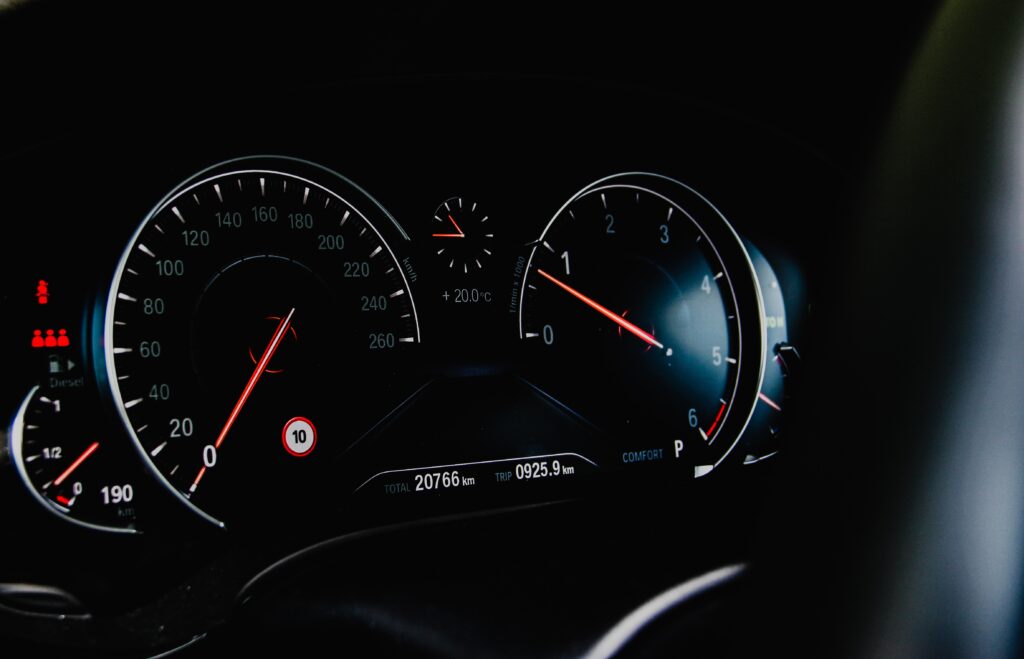Have you ever wondered what it means if your exhaust is smoking? In this article, we’ll explore the possible reasons behind your smoking exhaust and what it could indicate about your vehicle’s health. Whether it’s white, black, or blue smoke, we’ll cover the most common causes and what you should do if you notice your exhaust emitting smoke. By the end, you’ll have a better understanding of what’s happening under your car’s hood and how to address any potential issues.
Types of Smoking Exhaust
White Smoke
If you notice white smoke coming out of your exhaust, it could indicate a coolant leak. It means that the coolant is burning in the combustion chamber. The most common causes of white smoke include a blown head gasket or a cracked cylinder head.
Black Smoke
Black smoke is usually a sign of a fuel-related problem. It means that the engine is burning too much fuel and not enough air is getting into the combustion chamber. This can be caused by issues such as a clogged air filter, a faulty fuel injector, or a problem with the fuel pressure regulator.
Blue Smoke
Blue smoke is a clear indication that your engine is burning oil. It means that oil is leaking into the combustion chamber and being burned along with the fuel. This can be caused by worn piston rings, worn valve guides, or a faulty PCV valve.
Causes of Smoking Exhaust
Burning Coolant
Burning coolant is the most common cause of white smoke in the exhaust. It can occur due to a blown head gasket, a cracked cylinder head, or a cracked engine block. When this happens, the coolant leaks into the combustion chamber and gets burned along with the fuel.
Burning Oil
If your exhaust is emitting blue smoke, it means that your engine is burning oil. This can be caused by worn piston rings, worn valve guides, or a faulty PCV valve. When oil gets into the combustion chamber, it burns along with the fuel and creates blue smoke.
Clogged Air Filter
A clogged air filter can cause black smoke to come out of your exhaust. When the air filter is clogged, it restricts the airflow into the combustion chamber, resulting in an improper air-fuel mixture. This can cause the engine to burn more fuel than it should, leading to black smoke.

Effects of Smoking Exhaust
Reduced Engine Performance
Smoking exhaust can significantly impact the performance of your engine. When there is a problem with the combustion process, the engine may not generate the necessary power to run efficiently. This can lead to decreased acceleration, sluggishness, and overall poor performance.
Increased Fuel Consumption
Smoking exhaust can also have a negative impact on your fuel consumption. If there is an issue with the air-fuel mixture, the engine may burn more fuel than necessary. This not only wastes fuel but also increases your fuel expenses.
Health Risks
Exhaust smoke can contain harmful substances such as carbon monoxide, which is toxic when inhaled. Breathing in these fumes can lead to various health issues, including headaches, dizziness, nausea, and even carbon monoxide poisoning. It is crucial to address any smoking exhaust issues promptly to ensure your safety and the safety of others.
Diagnostic Tests for Smoking Exhaust
Compression Test
A compression test measures the pressure inside each cylinder of the engine. This test can help identify issues such as a blown head gasket or worn piston rings, which can cause smoking exhaust.
Oil Analysis
Analyzing the oil can provide valuable insights into the internal condition of the engine. A lab can test the oil for contaminants such as coolant or metal particles, which may indicate problems with the engine.
Exhaust Leak Test
An exhaust leak test helps identify any leaks in the exhaust system that may cause smoking exhaust. By pressurizing the system and using a smoke machine, any leaks can be easily detected.

Common Solutions to Smoking Exhaust
Replacing Faulty Gaskets
If a blown head gasket or faulty valve seals are causing smoking exhaust, replacing these gaskets can solve the issue. It is essential to ensure proper installation to prevent further problems.
Fixing Oil Leaks
If smoking exhaust is the result of an oil leak, fixing the leaks or replacing worn seals can eliminate the issue. Regularly checking for oil leaks and addressing them promptly is crucial for preventing smoking exhaust.
Cleaning or Replacing Air Filters
If a clogged air filter is causing smoking exhaust, cleaning or replacing the air filter can resolve the issue. Regular maintenance and inspection of the air filter can prevent future problems.
Professional Help for Smoking Exhaust
Mechanic Consultation
If you are unsure about the cause of your smoking exhaust or if you need assistance in diagnosing and resolving the issue, consulting a professional mechanic is advisable. They have the expertise and tools to accurately identify and fix the problem.
Exhaust System Inspection
An inspection of the exhaust system can help identify any leaks or damage that may be causing smoking exhaust. A professional can thoroughly examine the system, including the catalytic converter and muffler, to determine the source of the problem.
Engine Diagnostics
If the cause of smoking exhaust is not apparent, an engine diagnostic test can help pinpoint the issue. This test uses specialized equipment to analyze the engine’s performance and identify any underlying problems.

Prevention and Maintenance Tips
Regularly Check Fluid Levels
Regularly checking the coolant and oil levels in your vehicle can help detect any leaks or low levels that may contribute to smoking exhaust. Maintaining proper fluid levels is vital for the overall health of your engine.
Keep Engine Properly Tuned
Regular tune-ups and maintenance can prevent issues that may lead to smoking exhaust. This includes changing spark plugs, replacing worn-out engine components, and ensuring the engine is running at optimal performance.
Use High-Quality Fuel
Using high-quality fuel can help prevent carbon buildup in the engine, which can contribute to smoking exhaust. Avoiding lower-grade fuels and using reputable gas stations can improve the overall health of your engine.
Conclusion
Experiencing smoking exhaust can be concerning, but understanding the different types, causes, and potential solutions can help you address the issue promptly. If you notice any smoke coming out of your exhaust, it is crucial to have it examined by a professional to determine the underlying cause and prevent further damage. Regular maintenance and care can also go a long way in preventing smoking exhaust and ensuring the longevity of your vehicle’s engine.
